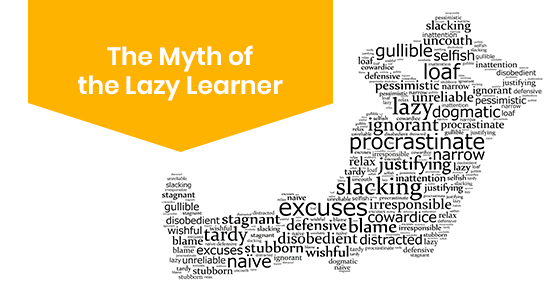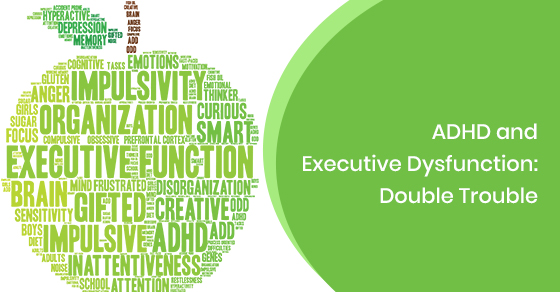Researchers estimate that in North America, 70 percent of students procrastinate in school. Many suffer from poor academic performance, decreased well-being, negative emotions, and reduced life achievements.
Procrastination and Executive Dysfunction
Is procrastination simply a personality trait? Are students who intentionally delay important tasks just being lazy? A growing body of research suggests otherwise. It shows that planning, judgment, time management, initiation, and other important executive functioning abilities are frequently impaired in people who procrastinate extensively.
That connection can also be observed in the classroom. In an essay on Medium.com, social psychologist Devon Price writes about their own experience teaching university students who procrastinate, fail to meet deadlines, and have trouble organizing projects.
“People love to blame procrastinators for their behaviour,” writes Price. “Putting off work sure looks lazy, to an untrained eye. Even the people who are actively doing the procrastinating can mistake their behaviour for laziness. You’re supposed to be doing something, and you’re not doing it—that’s a moral failure, right? That means you’re weak-willed, unmotivated, and lazy, doesn’t it?”
The Need for Scaffolding
But that behaviour, observes Price, is often linked to executive functioning challenges. Those students “struggle to divide a large responsibility into a series of discrete, specific, and ordered tasks.” Price provides an example of their own executive functioning at work: “I completed my dissertation (from proposal to data collection to final defense) in a little over a year. I was able to write my dissertation pretty easily and quickly because I knew that I had to a) compile research on the topic, b) outline the paper, c) schedule regular writing periods, and d) chip away at the paper, section by section, day by day, according to a schedule I had pre-determined.
“Nobody had to teach me to slice up tasks like that. And nobody had to force me to adhere to my schedule. Accomplishing tasks like this is consistent with how my analytical, autistic, hyper-focused brain works. Most people don’t have that ease. They need an external structure to keep them writing—regular writing group meetings with friends, for example—and deadlines set by someone else. When faced with a major, massive project, most people want advice for how to divide it into smaller tasks, and a timeline for completion. In order to track progress, most people require organizational tools, such as a to-do list, calendar, datebook, or syllabus.
“Needing or benefiting from such things doesn’t make a person lazy. It just means they have needs. The more we embrace that, the more we can help people thrive.”
Removing the Barriers That Drive Behaviour
Lazy behaviour often looks like a choice, but that is a false assumption, observes Price. No student chooses to struggle, no one gets up in the morning wanting to fail, and almost everyone is trying to do well and meet expectations.
“If a student isn’t writing a paper, there’s some aspect of the assignment they can’t do without help,” writes Price.
While it’s not possible to change someone’s neurology, tactics and support can help them overcome that challenge. Coaching and counselling can help decrease student academic procrastination, empowering students through self-awareness, assisting them in identifying obstacles, and finding strategies to help them facilitate change. At Evoke Learning, we work with our students to set realistic and concrete goals, explain the brain science behind procrastination, determine individual reasons for procrastination, and teach them how to self-advocate. Coaching helps students dig deep, determine what is getting in the way of their success, and create a plan to circumvent those barriers. Contact us to learn more.
Sources
Jennifer Bolden & Jonathan P. Fillauer (2019) “Tomorrow is the busiest day of the week”: Executive functions mediate the relation between procrastination and attention problems, Journal of American College Health, DOI: 10.1080/07448481.2019.1626399
Price, D. (2019, October 17). Laziness Does Not Exist. Retrieved January 31, 2020, from https://humanparts.medium.com/laziness-does-not-exist-3af27e312d01
Laura A. Rabin, Joshua Fogel & Katherine E. Nutter-Upham (2011) Academic procrastination in college students: The role of self-reported executive function, Journal of Clinical and Experimental Neuropsychology, 33:3, 344-357, DOI: 10.1080/13803395.2010.518597
Anthony Robert Rinaldi, Carrie Lurie Roper & John Mehm (2019) Procrastination as evidence of executive functioning impairment in college students, Applied Neuropsychology: Adult, DOI: 10.1080/23279095.2019.1684293



